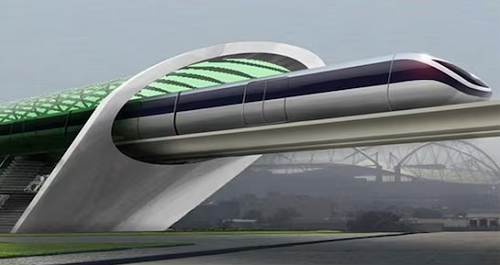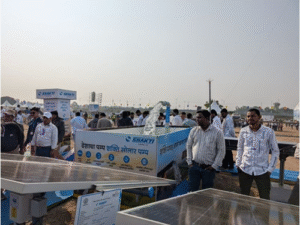India is making a groundbreaking move in the world of transportation with plans to build the world’s longest hyperloop corridor, a futuristic project with the potential to reduce travel times between major cities from hours to mere minutes. This ambitious initiative, a collaboration between the Indian Institute of Technology Madras (IIT Madras) and Indian Railways, aims to establish a commercial-grade transport corridor spanning 40-50 kilometers.
The announcement comes after significant progress at IIT Madras’s “Centre for Hyperloop Excellence,” where a 410-meter-long test tube has already been built, making it the longest such facility in Asia. This test track is being extended to become the longest in the world, providing a crucial platform for testing and refining the technology.
Hyperloop technology, which uses magnetic levitation to propel a pod through a near-vacuum tube, could achieve mind-blowing speeds of up to 1,100 km/h. This ultra-high-speed system would be completely immune to weather conditions, a major advantage for a country with diverse climates. The project’s ultimate goal is to revolutionize both passenger and freight transportation, easing congestion on existing rail and road networks.
The project is a testament to the “Aatmanirbhar Bharat” (Self-Reliant India) vision, as the entire system is being developed using indigenous technology. Indian Railways has provided significant financial and technical support to the IIT Madras team, and electronics for the project will be developed at the Integral Coach Factory (ICF) in Chennai, a testament to the country’s growing technological prowess.
While a final route has not been selected, locations like the Mumbai-Pune corridor are being eyed as potential sites for the first full-scale commercial implementation. The successful completion of this test corridor would be a major milestone, positioning India at the forefront of the global race to commercialize hyperloop technology and fundamentally changing the future of travel.







